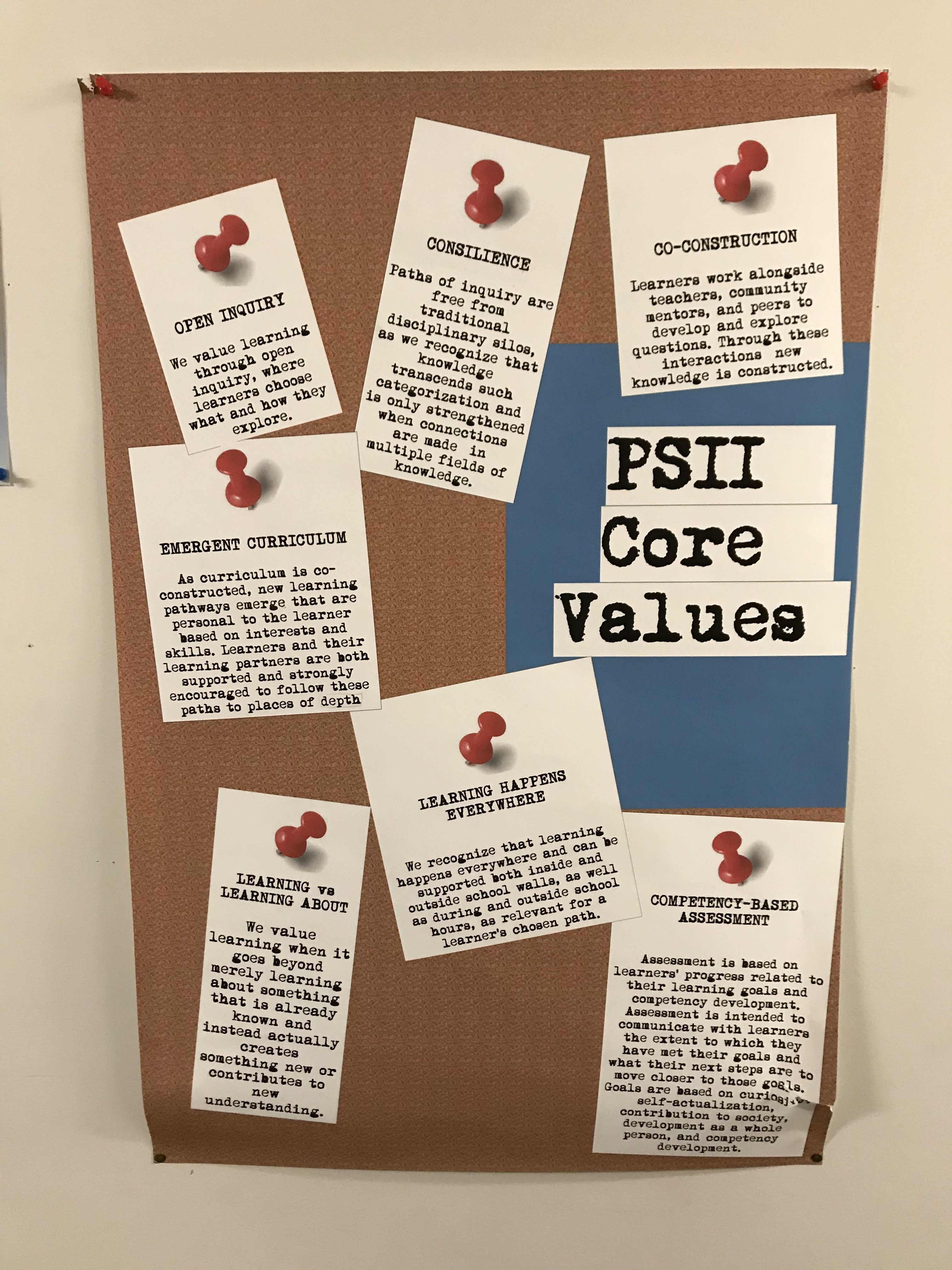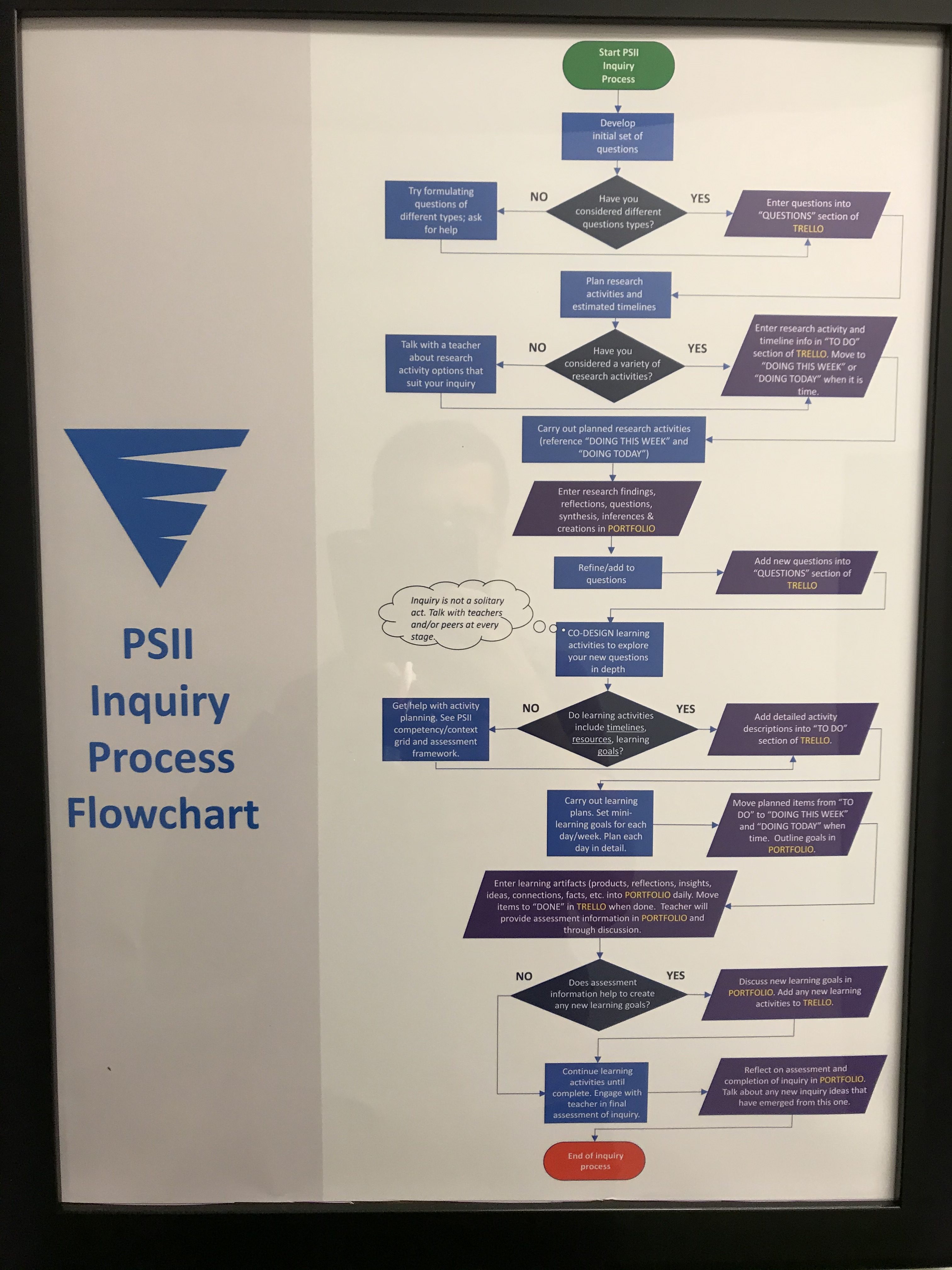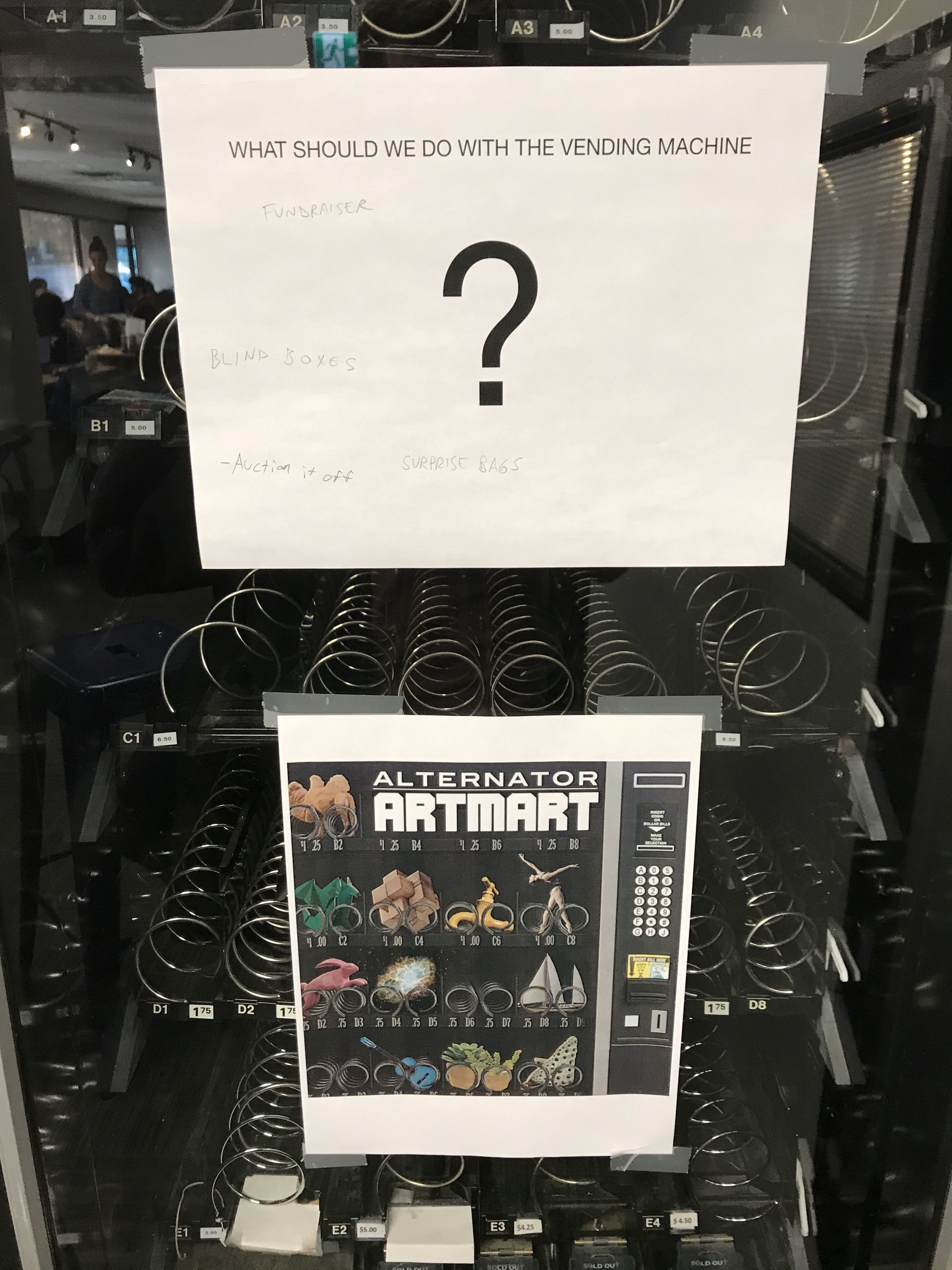
I had a great time visiting the Pacific School of Innovation and Inquiry yesterday. The high school, which has just under 100 students, replaces the traditional model, wherein subjects are separated neatly into blocks, with an interdisciplinary, inquiry-based model. Essentially, on day one students arrive at the school and begin to generate questions they’d like to answer. What may start as a single question often branches into many. These questions then become the foundation of their curriculum over the course of a school year. There is no formal homework, though as school founder Jeff Hopkins notes, students end up doing more work out of school than the average high school-er because they are engaged in emergent learning that they are genuinely passionate and curious about, and that they possess a great deal of agency over. According to Hopkins, staff manage to cover about 85-90% of the BC curriculum with any given student. This is thanks in part to the fact that teachers “nudge” students. That is, if they have gaps in what they are learning (i.e. if they are killing it at mathematics but not reading much) a teacher might have a conversation with them about perhaps picking up a little more non-fiction. The learning is all very collaborative and conversational, rather than being based around conventional, lecture-based interactions between teacher and student. The daily school schedule is a rich one, with students being offered periods in jam band practice, Japanese, baking, or creativity, among many other topics. A student will, on average, attend around 2 seminars a day, with the rest of the day being dedicated to their inquiry-based learning. In the brief time I was there, students were working on math with instructors one on one or in small groups, playing video games they designed, creating art, baking muffins, working quietly or immersed in a din of noise, and practicing guitar. The variety of focus was impressive, and I enjoyed the unique atmosphere the school offered. Jeff Hopkins made a convincing case that the inquiry, emergent model is feasible province-wide, based on factors including the costs of running such a school, the teacher to student ratio, and the benefits/salary/pension options available to instructors. As for the students, says Hopkins, the effectiveness of such a model for students is proven in the results. Students are clearly prepared for life and learning after high-school, he says. Former students have gone on to accelerated entry at UVic, careers in neuroscience, and business start-ups. Overall, I found the whole thing very inspiring, though one thing I didn’t quite agree with was the idea that this school model would work for all students. Sure, maybe it is working for all or most of the students attending PSII today, but perhaps this is because the school is drawing kids who already possess the characteristics necessary to functioning well within its structure (or lack thereof). I imagine that to thrive at a school like PSII, a student would need to have a healthy degree of self-regulation, curiosity, and drive to learn. For some students, more structure might be needed. That said, I’m with Jeff Hopkins when he says that the single-course approach to learning is (often, in my opinion) the end to inquiry-based earning. For many students, as soon as you say “here’s the course”, they say “OK, what do I need to do to pass/get an A this course.” I know this was, and still is to a large extent, the unfortunate way I thought about most of my learning (or lack thereof) at university. Nevertheless, I think the important thing is to realize that different people learn in different ways. It’s important to give learners options, and I think it is great that a school like PSII exists. I think more students and societies in BC and around the globe would benefit greatly if more schools like this existed.

Below: I wish someone had asked me this when I was in high-school!

Leave a Reply